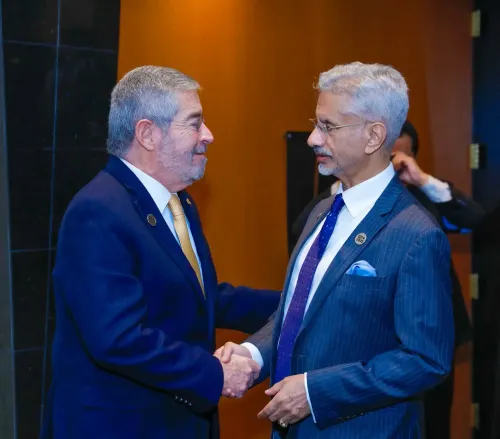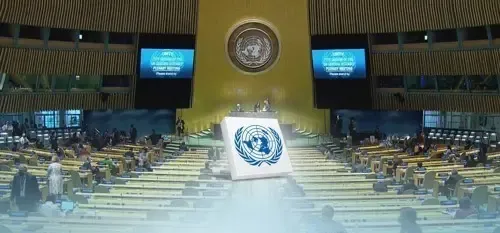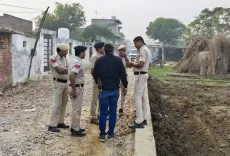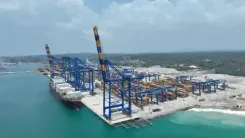Why Are Over 600 Workers Protesting on the Dhaka-Mymensingh Highway?
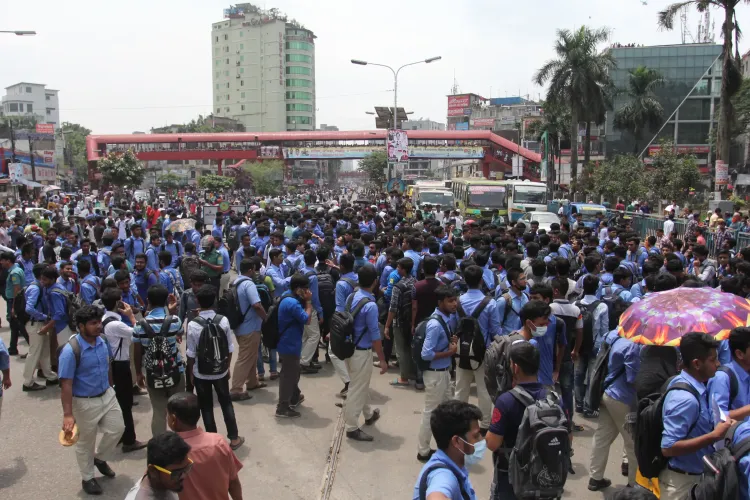
Synopsis
Key Takeaways
- Over 600 workers protested for unpaid wages, blocking a major highway.
- Traffic disruptions caused significant inconvenience to local commuters.
- The protest reflects ongoing issues within the garment industry in Bangladesh.
- Authorities managed to restore order after persuading workers to disperse.
- The Awami League criticized the government following recent violence against workers.
Dhaka, Sep 8 (NationPress) More than 600 garment workers in Bangladesh organized a demonstration on Monday demanding their overdue wages, leading to a blockade of the Dhaka-Mymensingh highway.
This protest halted traffic, causing significant disruptions for commuters and nearby residents, as reported by local media.
Farukul Alam, an inspector with the Gazipur Industrial Police's Basan Zone, confirmed that traffic returned to normal after the workers were convinced to disperse.
Following the protest, the workers entered their factory to meet with management in an effort to advocate for their demands.
The workers reported that their salaries for July and August remain unpaid, and with September nearing its end, delays in payments continue to be justified by management through claims of holidays.
The absence of their earnings has left numerous workers struggling to support their families and facing mounting pressure from landlords regarding unpaid rent, as highlighted by Bangladesh’s prominent newspaper, Daily Star.
Last week, violence erupted in northern Bangladesh, resulting in the death of one worker and injuries to ten others during clashes between workers and law enforcement amid protests against factory closures and layoffs.
Protesters gathered in the Export Processing Zone (EPZ) in the Nilphamari district of the Rangpur Division, where they engaged in confrontations with security personnel, according to local media.
In the wake of this violent occurrence, Bangladesh’s Awami League party criticized the Muhammad Yunus-led interim government for the shooting death of an unarmed factory worker during the protests in Nilphamari.
Condemning this tragic event, the Awami League accused the Yunus administration of turning Bangladesh into a landscape of bloodshed, a reality witnessed by the nation.
“This unjust, illegitimate regime views any citizen demanding their rights as an adversary. They are terrified of the people’s power and resort to violence to suppress those who seek justice,” stated the Awami League.
The party emphasized that this incident is part of a larger pattern, as workers have been killed in other regions while asserting their rights.
Instead of addressing the workers' concerns, the Awami League accused the “illegitimate” Yunus government of silencing workers’ voices through force.
Since the interim government led by Yunus took office in August 2024, protests and strikes by workers over unpaid wages and deteriorating working conditions have erupted nationwide.

